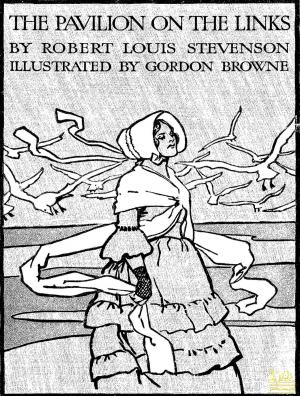| Author: | Apuleius | ISBN: | 9780599638693 |
| Publisher: | Lighthouse Books for Translation Publishing | Publication: | April 28, 2019 |
| Imprint: | Lighthouse Books for Translation and Publishing | Language: | English |
| Author: | Apuleius |
| ISBN: | 9780599638693 |
| Publisher: | Lighthouse Books for Translation Publishing |
| Publication: | April 28, 2019 |
| Imprint: | Lighthouse Books for Translation and Publishing |
| Language: | English |
Lucius Apuleius, (born c. 124 ce, Madauros, Numidia [near modern M’Daourouch, Algeria]—died probably after 170 ce), Platonic philosopher, rhetorician, and author remembered for The Golden Ass, a prose narrative that proved influential long after his death. The work, called Metamorphoses by its author, narrates the adventures of a young man changed by magic into an ass.
Apuleius, who was educated at Carthage and Athens, traveled in the Mediterranean region and became interested in contemporary religious initiation rites, among them the ceremonies associated with worship of the Egyptian goddess Isis. Intellectually versatile and acquainted with works of both Latin and Greek writers, he taught rhetoric in Rome before returning to Africa to marry a rich widow, Aemilia Pudentilla. To meet her family’s charge that he had practiced magic to win her affection, he wrote the Apologia (“Defense”), the major source for his biography.
For The Golden Ass it is likely that he used material from the lost Metamorphoses by Lucius of Patrae, which has been cited by some as the source for the brief extant Greek work on a similar theme, Lucius; or, The Ass, attributed to the Greek rhetorician Lucian. Though Apuleius’s novel is fiction, it contains a few definitely autobiographical details, and its hero has been seen as a partial portrait of its author. It is particularly valuable for its description of the ancient religious mysteries, and Lucius’s restoration from animal to human shape, with the aid of Isis, and his acceptance into her priesthood suggests that Apuleius himself had been initiated into that cult. Considered a revelation of ancient manners, the work has been praised for its entertaining and at times bawdy episodes that alternate between the dignified, the ludicrous, the voluptuous, and the horrible. Its “Cupid and Psyche” tale (Books IV–VI) has been frequently imitated by later writers, including the English poets Shakerley Marmion in 1637, Mary Tighe in 1805, William Morris in The Earthly Paradise (1868–70), and Robert Bridges in 1885 and 1894 and the Irish-born writer C.S. Lewis in the novel Till We Have Faces: A Myth Retold (1956). Some of Lucius’s adventures reappear in The Decameron by Giovanni Boccaccio, in Don Quixote by Miguel de Cervantes, and in Gil Blas by Alain-René Lesage. Of Apuleius’s other literary works, his Florida is, like The Golden Ass, stylistically affected.
More influential than that collection of the author’s declamations on various subjects have been his philosophical treatises. He wrote three books on Plato: De Platone et eius dogmate (“On Plato and His Teaching”); De Deo Socratis (“On the God of Socrates”), which expounds the Platonic notion of demons, beneficent creatures intermediate between gods and mortals; and another, which is now lost. His De mundo (“On the World”) adapts a treatise incorrectly attributed to Aristotle. Apuleius asserted that he had written a number of poems and works on natural history, but those works are lost. The noted Asclepius, a Latin translation of a (now lost) Greek Hermetic dialogue, was wrongly attributed to him. His collected works were first edited by Joannes Andreas (1469); later editions in Latin include a three-volume collection by Rudolf Helm and Paul Thomas (1905–10) and the Index Apuleianus by William Abbott Oldfather, Howard Vernon Canter, and Ben Edwin Perry (1934). In English, The Golden Ass was translated by P.G. Walsh in 1994, and modern editions appear in the Loeb Classical Library series.
Lucius Apuleius, (born c. 124 ce, Madauros, Numidia [near modern M’Daourouch, Algeria]—died probably after 170 ce), Platonic philosopher, rhetorician, and author remembered for The Golden Ass, a prose narrative that proved influential long after his death. The work, called Metamorphoses by its author, narrates the adventures of a young man changed by magic into an ass.
Apuleius, who was educated at Carthage and Athens, traveled in the Mediterranean region and became interested in contemporary religious initiation rites, among them the ceremonies associated with worship of the Egyptian goddess Isis. Intellectually versatile and acquainted with works of both Latin and Greek writers, he taught rhetoric in Rome before returning to Africa to marry a rich widow, Aemilia Pudentilla. To meet her family’s charge that he had practiced magic to win her affection, he wrote the Apologia (“Defense”), the major source for his biography.
For The Golden Ass it is likely that he used material from the lost Metamorphoses by Lucius of Patrae, which has been cited by some as the source for the brief extant Greek work on a similar theme, Lucius; or, The Ass, attributed to the Greek rhetorician Lucian. Though Apuleius’s novel is fiction, it contains a few definitely autobiographical details, and its hero has been seen as a partial portrait of its author. It is particularly valuable for its description of the ancient religious mysteries, and Lucius’s restoration from animal to human shape, with the aid of Isis, and his acceptance into her priesthood suggests that Apuleius himself had been initiated into that cult. Considered a revelation of ancient manners, the work has been praised for its entertaining and at times bawdy episodes that alternate between the dignified, the ludicrous, the voluptuous, and the horrible. Its “Cupid and Psyche” tale (Books IV–VI) has been frequently imitated by later writers, including the English poets Shakerley Marmion in 1637, Mary Tighe in 1805, William Morris in The Earthly Paradise (1868–70), and Robert Bridges in 1885 and 1894 and the Irish-born writer C.S. Lewis in the novel Till We Have Faces: A Myth Retold (1956). Some of Lucius’s adventures reappear in The Decameron by Giovanni Boccaccio, in Don Quixote by Miguel de Cervantes, and in Gil Blas by Alain-René Lesage. Of Apuleius’s other literary works, his Florida is, like The Golden Ass, stylistically affected.
More influential than that collection of the author’s declamations on various subjects have been his philosophical treatises. He wrote three books on Plato: De Platone et eius dogmate (“On Plato and His Teaching”); De Deo Socratis (“On the God of Socrates”), which expounds the Platonic notion of demons, beneficent creatures intermediate between gods and mortals; and another, which is now lost. His De mundo (“On the World”) adapts a treatise incorrectly attributed to Aristotle. Apuleius asserted that he had written a number of poems and works on natural history, but those works are lost. The noted Asclepius, a Latin translation of a (now lost) Greek Hermetic dialogue, was wrongly attributed to him. His collected works were first edited by Joannes Andreas (1469); later editions in Latin include a three-volume collection by Rudolf Helm and Paul Thomas (1905–10) and the Index Apuleianus by William Abbott Oldfather, Howard Vernon Canter, and Ben Edwin Perry (1934). In English, The Golden Ass was translated by P.G. Walsh in 1994, and modern editions appear in the Loeb Classical Library series.















